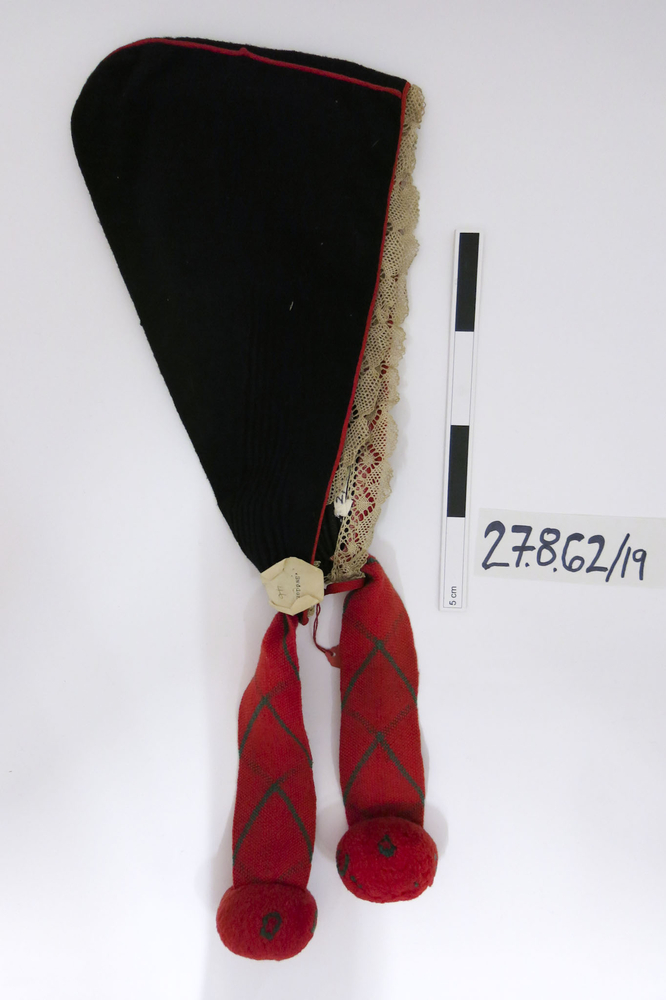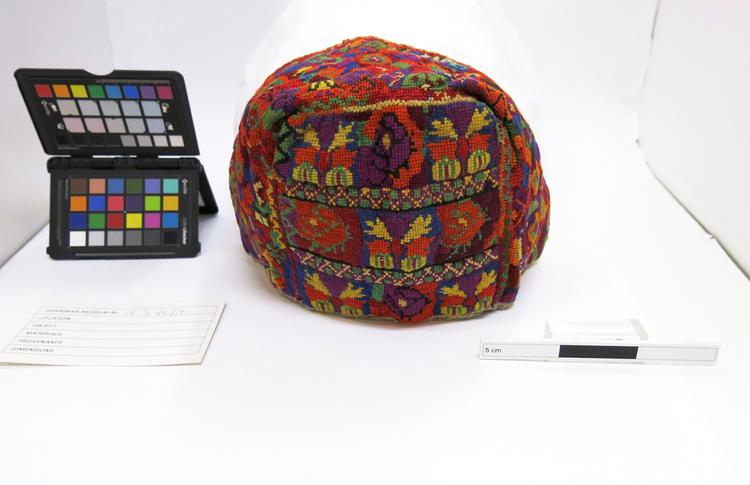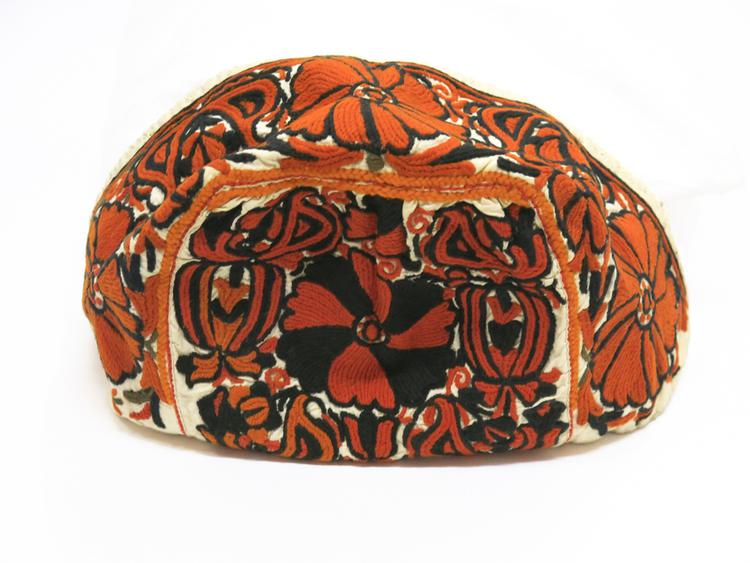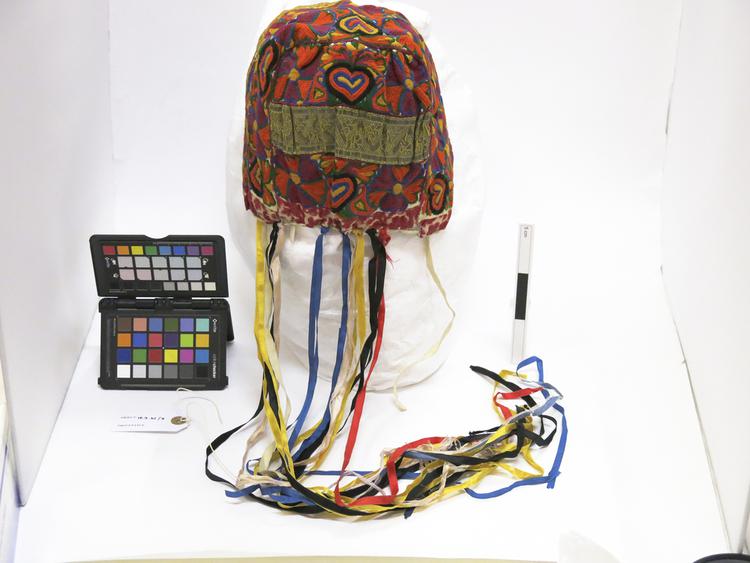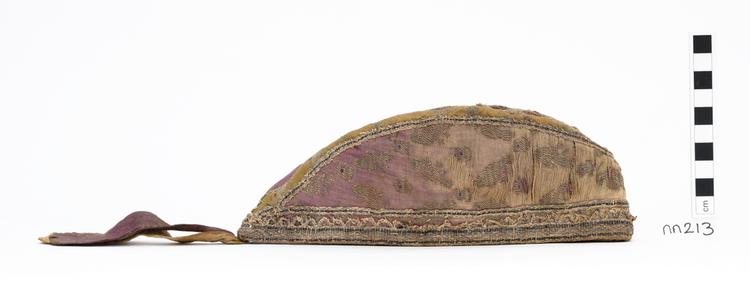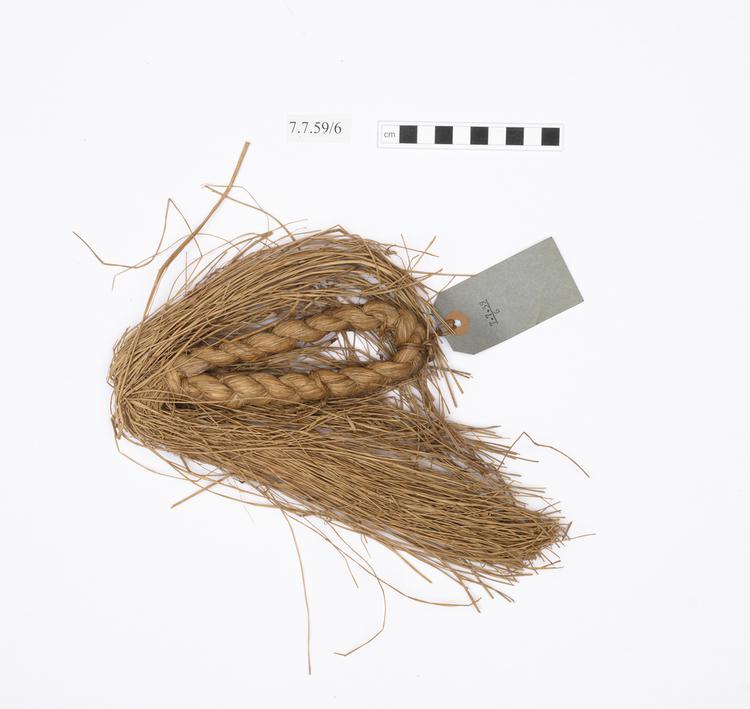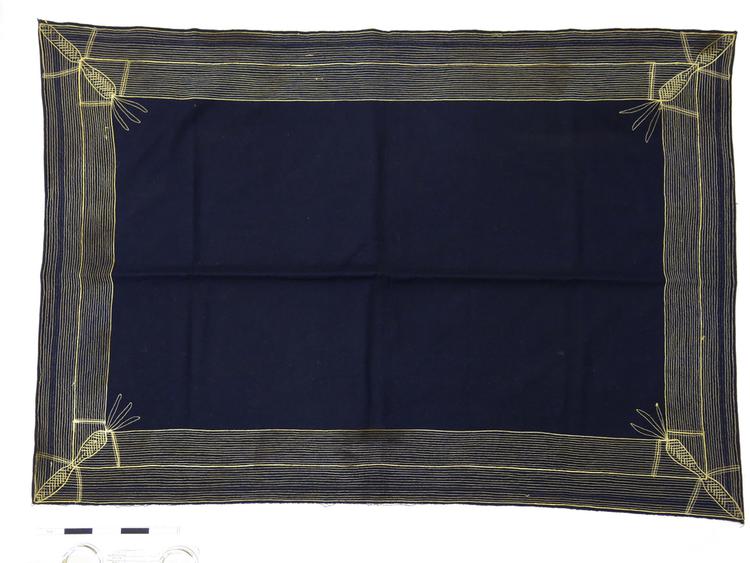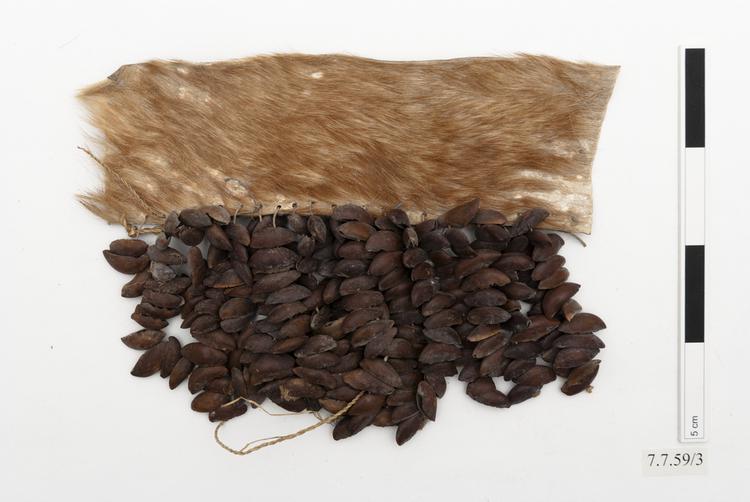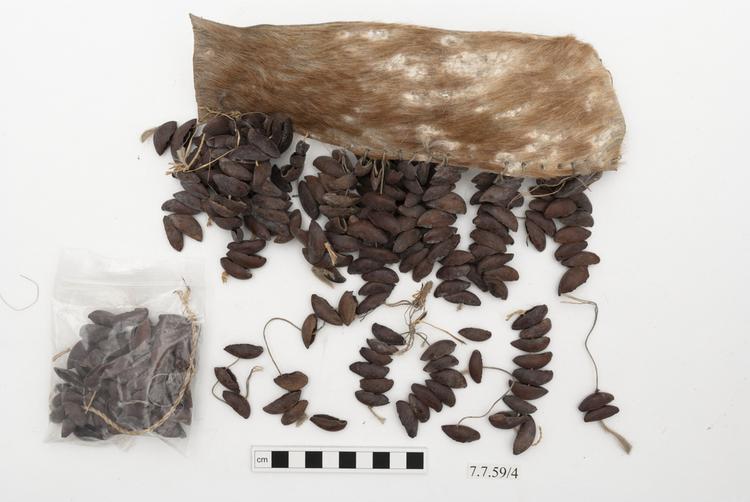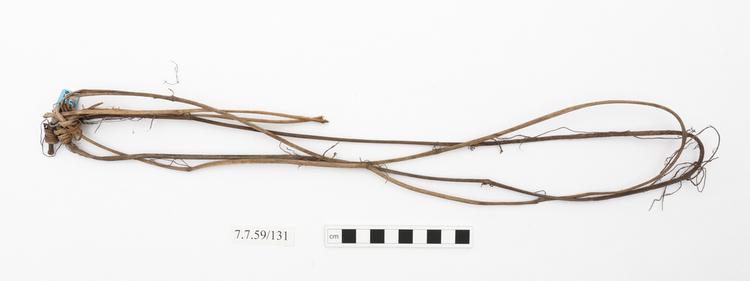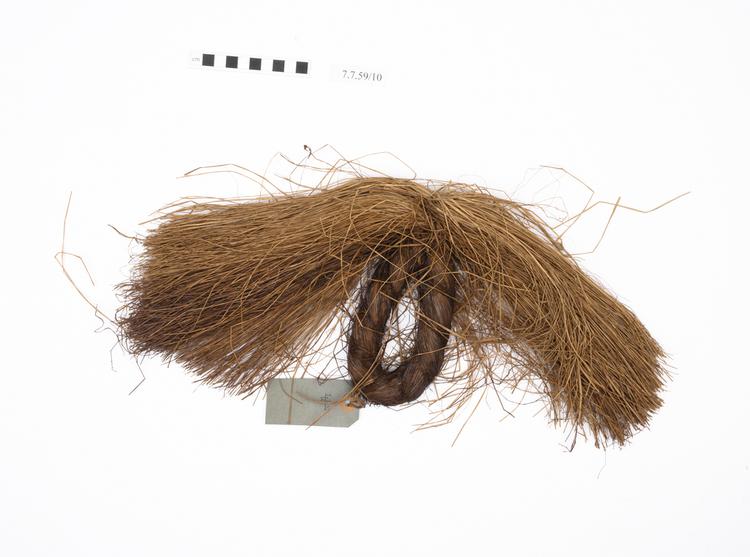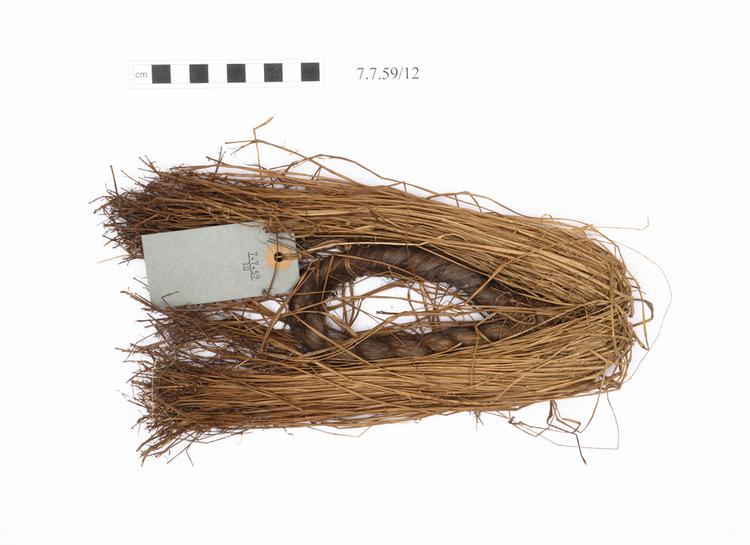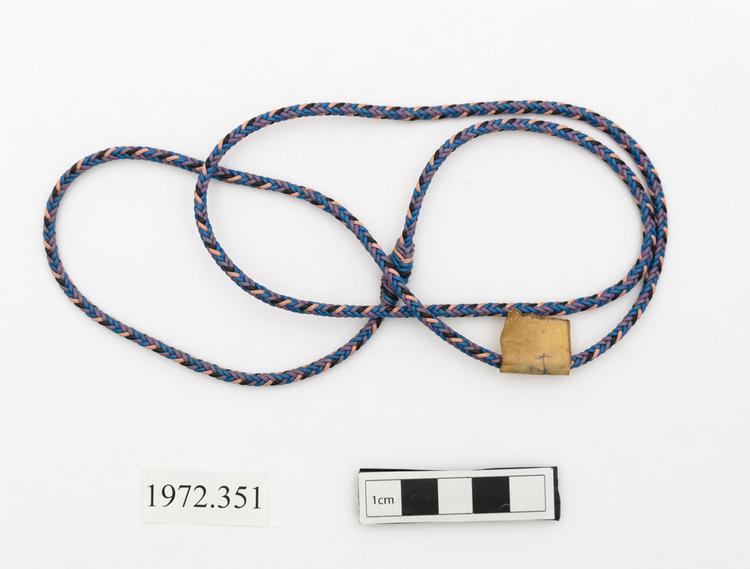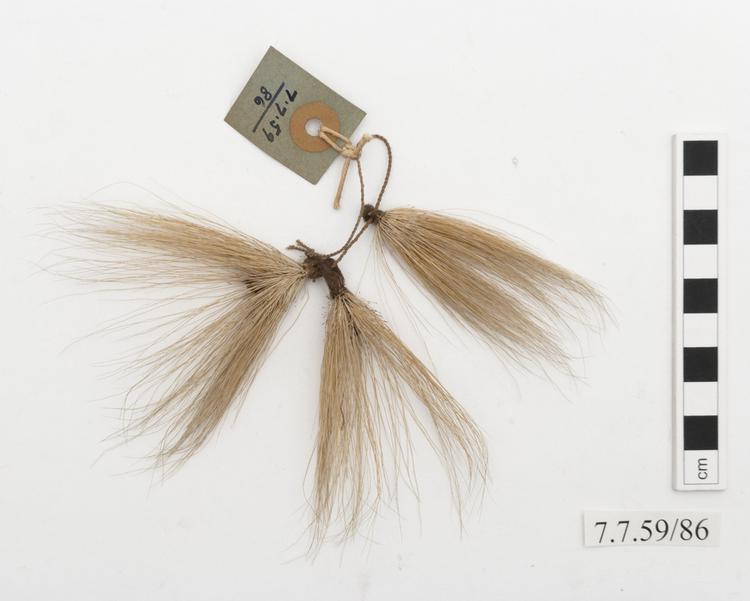The collection comprises approximately 80,000 objects from around the world, and includes artefacts of major national and international significance. Through the anthropology collection you can find a path into understanding the everyday lives and beliefs of people from all over the world, including ourselves.
The quality, diversity and beauty of the objects in the collection are testament to the technical, aesthetic and practical skills of people throughout the world. The collection is constantly being researched and added to.
African
There are an estimated 22,000 objects from Africa in our collection. It covers the whole of the continent, with virtually every modern African state represented.
In recent years, we have concentrated on the development of collections to illustrate contemporary masquerade from countries that are not well represented in other national and local museums. Fieldworkers are encouraged to commission new works by acknowledged makers rather than remove existing works from circulation.
American
The core of our American collections was built from purchases. Primary amongst these are the Inuit and Northwest coast collections made by A.C. Haddon and donated to the Museum by Emslie Horniman.
During the last 50 years, the main focus of research and collecting has been on the American Southwest, in particular Navajo textiles, Pueblo ceramics and Hopi Katsinam.
Asian
There are approximately 32,000 items in our Asian collection. The collection is particularly rich in art, including carvings of gods, masks and puppets, and other items of material culture from India, China, Japan, Sri Lanka and Burma.
In recent decades the Horniman has developed the collection in the area of performance, acquiring puppets and masks from Nepal, Japan, Sri Lanka, China and Central Asia.
European
The Horniman contains substantial and important collections from western and central Europe, as well as Scandinavia.
Frederick Horniman was an avid collector of European material, acquiring examples of items which were in danger of being lost as a result of industrialisation and urbanisation. Since then, donations from England, Romania and the Balkans (amongst others) have greatly enhanced the collections.
Oceania
There are around 3,000 objects from Oceania in the collections.
They contain material from each of the region’s three sub-areas, Melanesia, Micronesia and Polynesia, with a particularly strong focus on Papua New Guinea. With few exceptions, the items in the Oceanic collections are of outstanding quality.
Archaeology
The Horniman’s collections include a substantial amount of archaeological material from all over the world. British prehistoric material forms a large proportion of collection, as well as prehistoric objects from Europe, some parts of Africa, ancient Peruvian pottery and Caribbean stone tools.
Textiles
There are more than 6,500 items in the Horniman’s textile collections, from many different countries and cultures. They show the enormous variety of textile traditions across the world, and employ a wide range of manufacturing techniques and designs.






